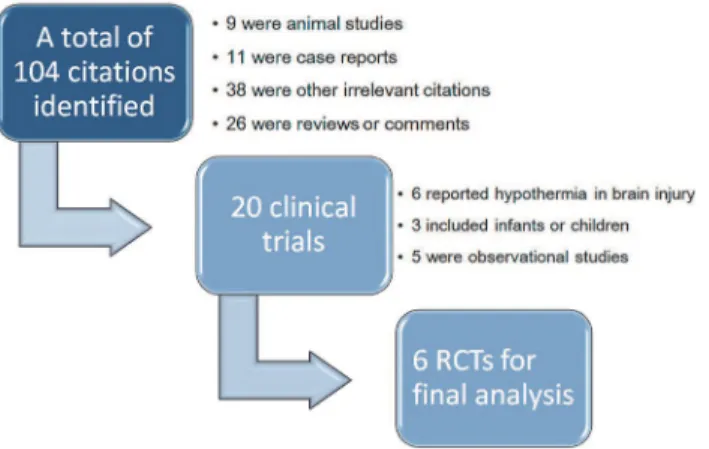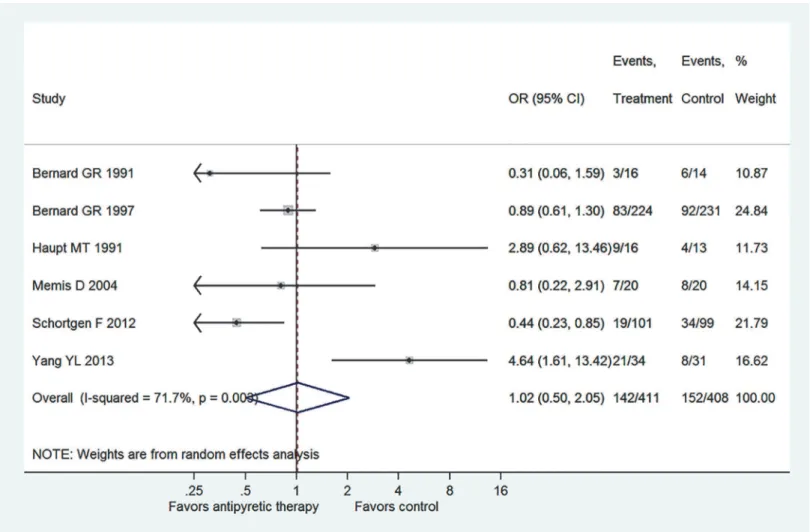Antipyretic therapy in critically ill patients with established sepsis: a trial sequential analysis.
Texto
Imagem




Documentos relacionados
he therapy for sepsis, severe sepsis and septic shock and multiple-organ system failure (MOSF) includes: (1) volume resuscitation; (2) treatment of the infection; (3) the use
his study included 1,121 patients (1,078 kidney donors, 20 severe sepsis patients and 23 patients admitted for septic shock) enrolled between October 2010 and October 2012..
Methods: Serum sRAGE values in patients who were divided into intensive care unit control, severe sepsis, septic shock and recovery from septic shock groups were
In the present study, which was performed with TBI ICU patients who developed sepsis, the presence of septic shock and respiratory failure after 72 hours of the sepsis diagnosis
Considering the lack of epidemiological studies involving severe sepsis/septic shock patients in the ED, the aim of the study was to determine the occurrence rate, demographic
abstract Objective: To estimate the cost of hospitalization of patients with severe sepsis or septic shock admitted or diagnosed in the Urgent and Emergency sector at a
to better understand sepsis molecular bases, the difer- ential expression of serum proteins in septic patients in diferent severity stages (sepsis, severe sepsis, and septic
another study, however, that compared the levels of pro-BNP in patients with severe sepsis, septic shock and acute heart failure in 24 patients, the level of the peptide was


